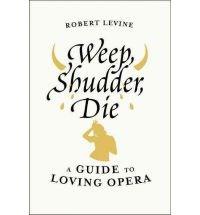
Nr Pag: 256
ISBN: 9780061941313

What, really, is opera? At the turn of the 20th century - and for the previous 260 years - opera houses all over the world were filled with all classes of people; Venice had a dozen filled houses in the mid-1700s. Opera was the movie business of its day-houses were abundant, prices went from high down to everyman's. In the first fifty years of the 19th century, over 1000 new operas were produced in Italy alone. When Caruso sang in New York, half the Met was filled with Italian immigrants - mostly proud, poor, and not fluent in English. They were at home at the opera. With the advent of movies, which were cheaper and eventually ubiquitous, people didn't need language: the movies were silent. Then came sound, and they could learn the language and be entertained at the same time, often by watching many of their favorite opera stars. The rich Americans kept the European pretense of opera-going, and until the recent democratization of opera-on TV, in arenas (The Three Tenors), in movie theaters - too many people felt unwelcome at the stiff, stuffy opera house. Dress codes have changed, and people's appetite for incredible costumes, set design, and masterful singing performances has increased exponentially. Now the movie-going opera lovers are entering the opera houses, and Robert Levine has written a wonderful guide for a new generation of opera lovers. With his signature wit, Levine collects the most memorable and significant operas and composers, from Wagner's Der Ring des Nibelungen to Mozart's Le nozze di Figaro and Tchaikovsky's Eugene Onegin, and he gives us a sense of the history of each composition while relating it to today's audiences. Irreverent and illuminating, Weep, Shudder, Die will inspire all those curious about opera to discover one of the world's greatest art forms.